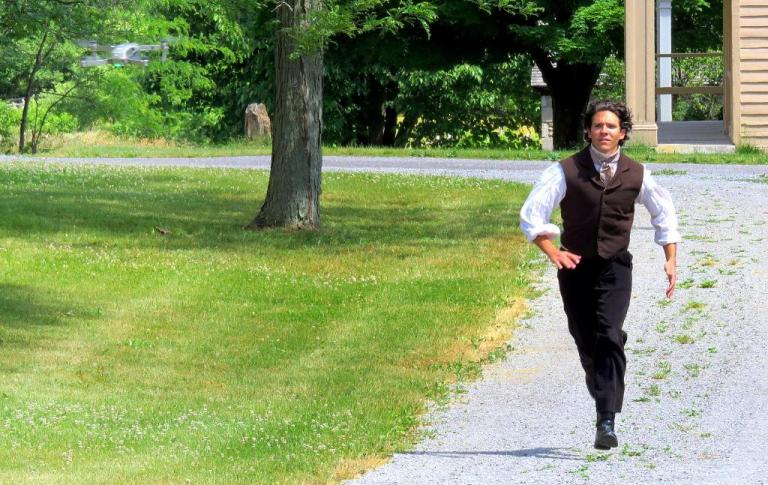
We’re familiar, of course, with Oliver Cowdery as one of the official Three Witnesses to the Book of Mormon. But his role in the early events of the Restoration, and his experiences with the divine, were broader than that. Here are some rough notes from an incomplete manuscript of mine:
A letter of Oliver Cowdery to Phineas Young, dated 23 March 1846, and sent from Tiffin, Seneca County, Ohio, in which Oliver expresses his wish that, prior to returning to full fellowship in the Church, his name be cleared from false charges:
That I may not be misunderstood, let me here say, that I have only sought, and only asked, that my character might be exonerated from those charges imputed to me the crimes of theft, forgery, etc. Those which all my former associates know to be false. I do not, I have never asked, to be excused, or exempted from an acknowledgement of any actual fault or wrong—for of these there are many, which it always was my pleasure to confess—I have cherished a hope, and that one of my fondest, that I might leave such a character as those who might believe in my testimony, after I should be called hence, might do so, not only for the sake of the truth, but might not blush for the private character of the man who bore that testimony. I have been sensitive on this subject, I admit, but I ought to so be, you would be under the circumstances, had you stood in the presence of John with our departed Brother Joseph, to receive the lesser priesthood, and in the presence of Peter, to receive the greater, and looked down through time, and witness the effects these two must produce—you would feel what you have never felt, were wicked men conspiring to lessen the effects of your testimony on man, after you should have gone to your long sought rest.[1]
Oliver Cowdery, testifying about the ordination he and Joseph Smith received at the hands of Peter, James, and John:
We received the high and holy priesthood . . . after . . . we . . . were baptized.[2]
I . . . stood in the presence of John, with our departed Joseph, to receive the Lesser Priesthood—and in the presence of Peter, to receive the Greater.[3]
Long after the authority to administer in holy things had been taken away, the Lord opened the heavens and sent forth his word for the salvation of Israel. In fulfillment of the sacred Scripture the everlasting Gospel was proclaimed by the mighty angel (Moroni) who, clothed with the authority of his mission, gave glory to God in the highest. This gospel is the “stone taken from the mountain without hands.” John the Baptist, holding the keys of the Aaronic Priesthood; Peter, James and John holding the keys of the Melchizedek Priesthood, have also ministered for those who shall be heirs of salvation, and with these ministrations ordained men to the same Priesthoods. These priesthoods, with their authority, are now, and must continue to be, in the body of the Church of Jesus Christ of Latter-day Saints. . . . In connection with Joseph the Seer, [I] was blessed with the above ministrations.[4]
[1] See Larry E, Morris, ed., A Treasury of Latter-day Saint Letters (Salt Lake City: Eagle Gate, 2001), 78-79.
[2] Book of Patriarchal Blessings (September 1835), cited in Backman, Eyewitness Accounts, 114.
[3] From a letter of Oliver Cowdery to Phineas Young (23 March 1846), of which a photocopy exists in the Church Archives, as cited in Backman, Eyewitness Accounts, 114.
[4] Statement of Oliver Cowdery to Samuel W. Richards (13 January 1849), published in the Deseret Evening News (Salt Lake City, 22 March 1884), and cited in Backman, Eyewitness Accounts, 114.











